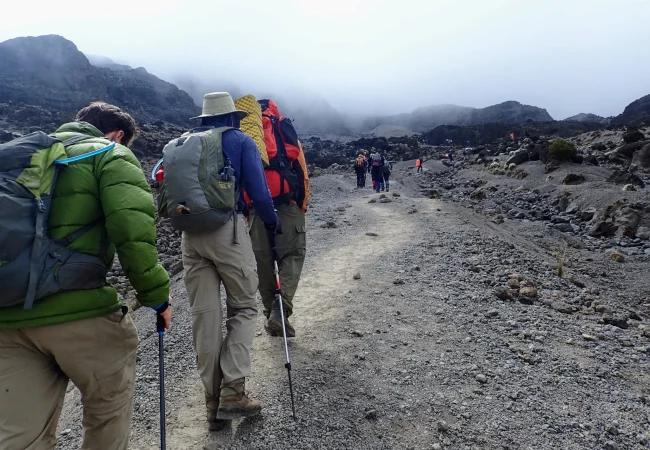Mount Kilimanjaro Trekking
Essential Equipment for Your Adventure
Embarking on a Kilimanjaro trek is a thrilling adventure, but proper preparation is key to ensuring a safe and enjoyable experience. The right gear will not only keep you comfortable but also increase your chances of a successful summit. Below is a comprehensive guide to the essential trekking gear you’ll need for Kilimanjaro.
1. Clothing Layers
Base Layer:
Moisture-wicking thermal shirts and leggings are essential for keeping dry and warm as temperatures drop at higher altitudes.
Mid Layer:
Insulating fleece or soft-shell jackets will provide warmth. You’ll want something lightweight yet effective for those chilly mornings and evenings.
Outer Layer (Shell):
A windproof, waterproof jacket and pants are crucial to protect you from unpredictable mountain weather, especially rain and wind at higher elevations.
Headwear:
– Hat: A sun hat for lower altitudes and a warm beanie or balaclava for cold summit nights.
– Sunglasses: UV-protected sunglasses to shield your eyes from the intense sun at high altitudes.
Gloves:
– Inner gloves: Thin, moisture-wicking gloves for flexibility.
– Outer gloves: Insulated and waterproof gloves to keep your hands warm at higher altitudes.
2. Footwear
Hiking Boots:
Comfortable, waterproof, and well-worn hiking boots with good ankle support are crucial for Kilimanjaro. Ensure your boots are broken in to avoid blisters.
Gaiters:
Gaiters protect your lower legs and boots from mud, rocks, and snow, particularly useful on the final ascent.
Socks:
High-quality, moisture-wicking hiking socks are essential. Bring several pairs of thermal socks for warmth at night.
3. Trekking Equipment
Daypack (25-30L):
You’ll need a comfortable daypack for carrying essentials like water, snacks, and layers of clothing. Make sure it has padded straps and is weather-resistant.
Trekking Poles:
Trekking poles provide extra stability and reduce strain on your knees, especially on descents and uneven terrain.
Headlamp:
A headlamp with extra batteries is vital for the final nighttime summit push and early morning starts.
4. Sleeping Essentials
Sleeping Bag:
A high-quality, four-season sleeping bag rated for -10°C to -15°C will keep you warm at the higher camps where temperatures drop significantly.
Sleeping Mat:
While many tour operators provide sleeping mats, having your own inflatable or foam sleeping pad can add extra comfort.
5. Hydration and Nutrition
Water Bottles & Hydration System:
A hydration bladder or water bottles are essential. You should aim to drink 3-4 liters of water per day to stay hydrated, especially at altitude.
Water Purification Tablets/Filters:
Though water is provided, it’s always safe to have purification tablets or a water filter as an extra precaution.
6. Accessories
Sunscreen and Lip Balm:
High-SPF sunscreen and lip balm will protect you from the intense sun at high altitudes.
Buff or Scarf:
A versatile item that can be used to cover your neck, face, or head from the sun, wind, or cold.
Portable Chargers:
If you want to keep your phone or camera powered during the trek, consider bringing a solar charger or power bank.
7. First Aid and Toiletries
Personal First Aid Kit:
Pack essentials like blister treatment, pain relievers, altitude sickness medication (consult your doctor), and any personal medications.
Wet Wipes & Hand Sanitizer:
Given the limited access to showers, wet wipes will be your go-to for staying clean, and hand sanitizer is a must for hygiene.
Toiletries:
Biodegradable soap, toothbrush, toothpaste, and other personal care items.
Renting Gear for Kilimanjaro
Don’t worry if you don’t have all the gear! Many items, including sleeping bags, trekking poles, and jackets, can be rented in Moshi or Arusha before your trek.
Important Tips:
– Layering is Key: Weather on Kilimanjaro can vary drastically from the base to the summit, so having a flexible layering system is essential.
– Test Your Gear: Make sure to break in your boots and test your gear before the trek to avoid any discomfort.
– Pack Smart: Keep your daypack light and carry only what’s necessary for the day. The porters will carry the bulk of your luggage.
Ready for Your Kilimanjaro Trek?
Our team at Serengeti Infinity is here to assist you with detailed gear checklists and ensure you’re well-prepared for your trek. For more information on gear rentals or packing tips, feel free to contact us!

Trekking Packages
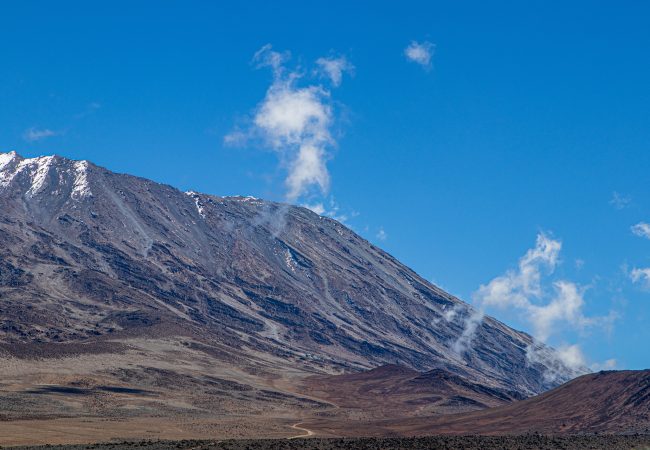
6-Day Kilimanjaro Trek via Marangu
$2,200
Per Person Sharing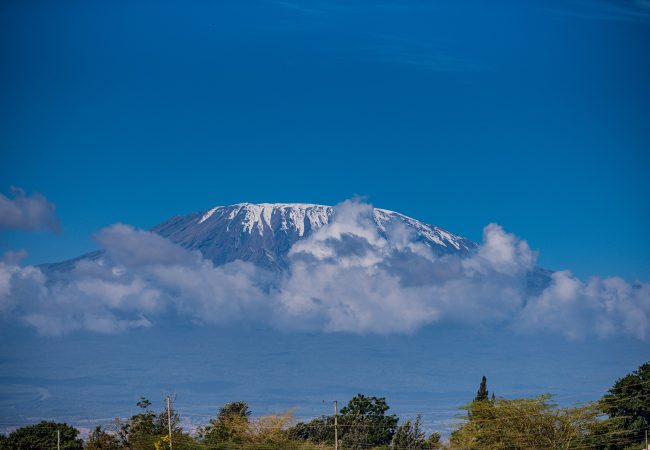
7-Day Kilimanjaro Trek via Machame
$2,640
Per Person Sharing
7-Day Kilimanjaro Trek via Lemosho
$2,100
Per Person Sharing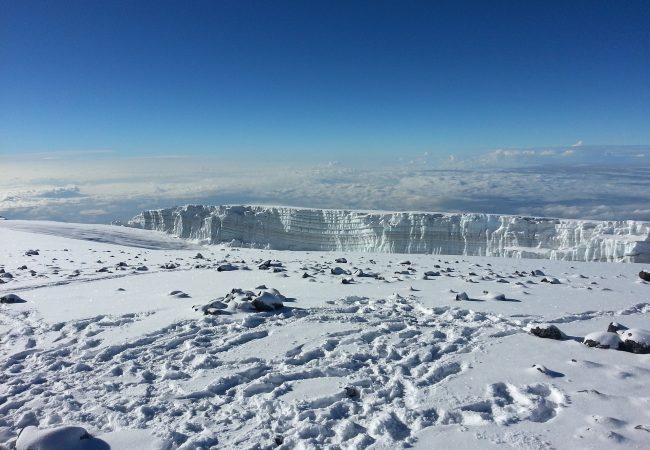
6-Day Kilimanjaro Trek via Rongai Route
$2,100
Per Person Sharing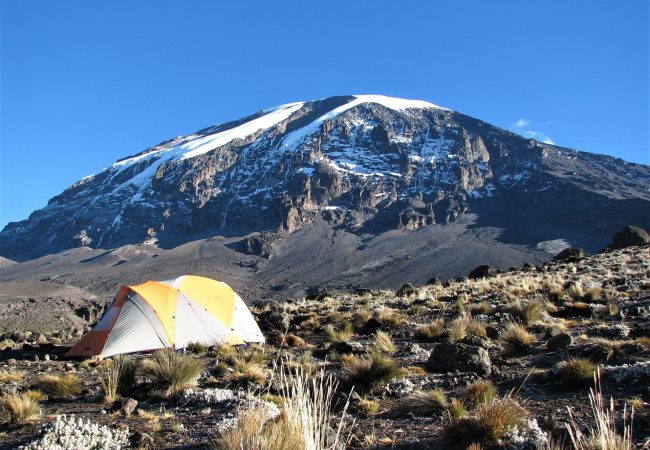
5-Day Kilimanjaro Trek via Marangu
$1,900
Per Person Sharing
6-Day Kilimanjaro Trek via Machame
$2,400
Per Person Sharing